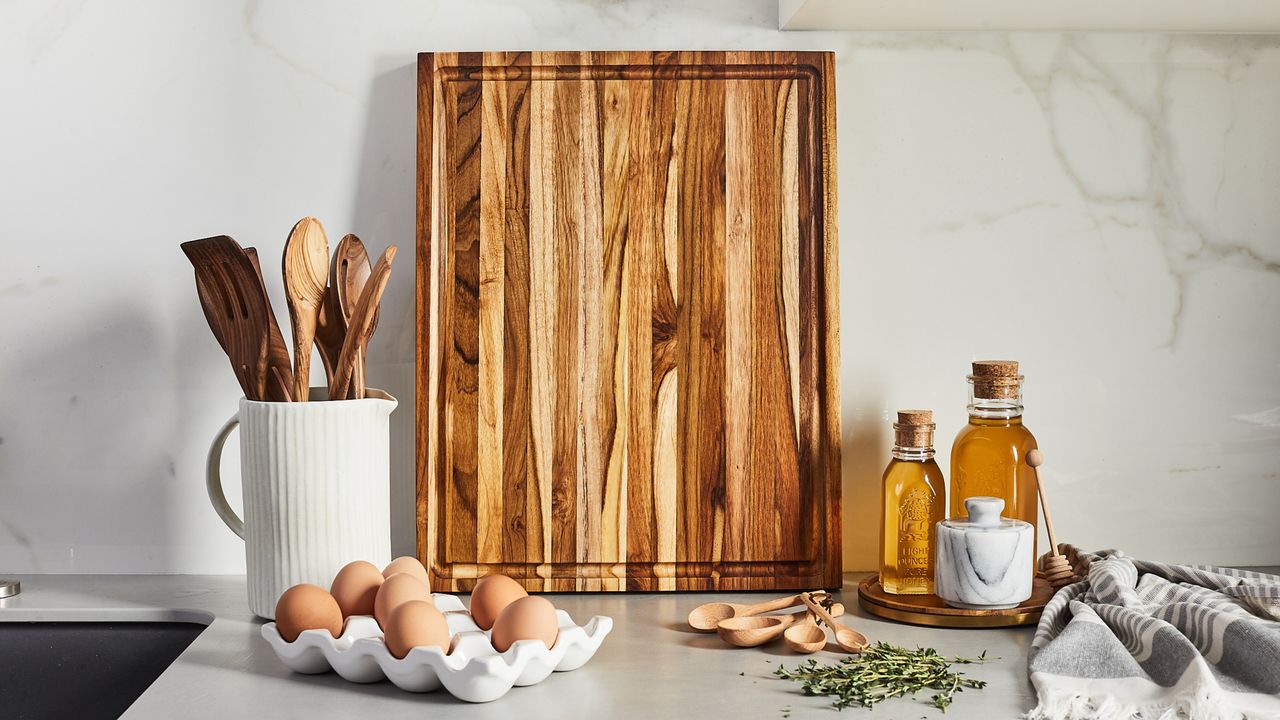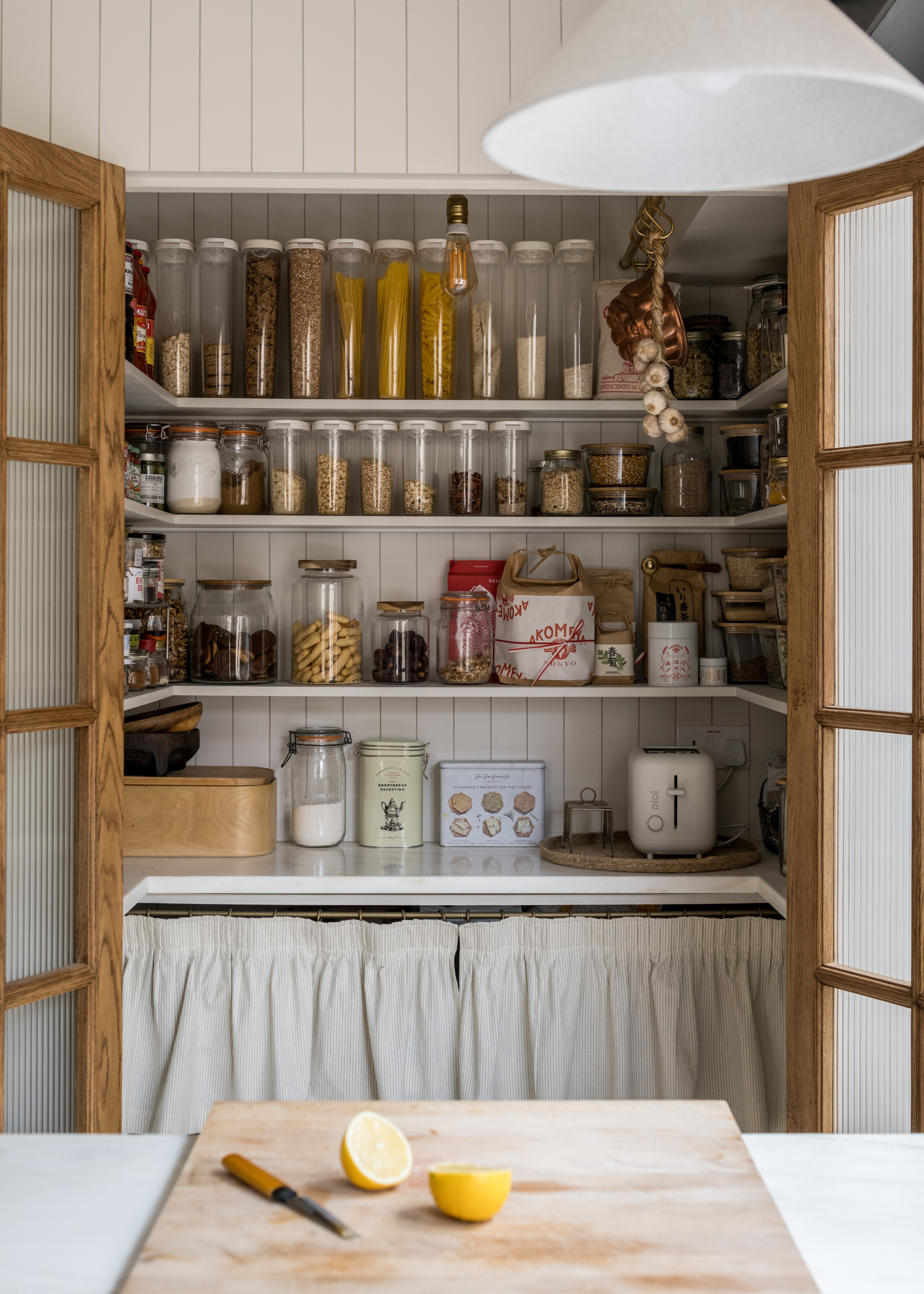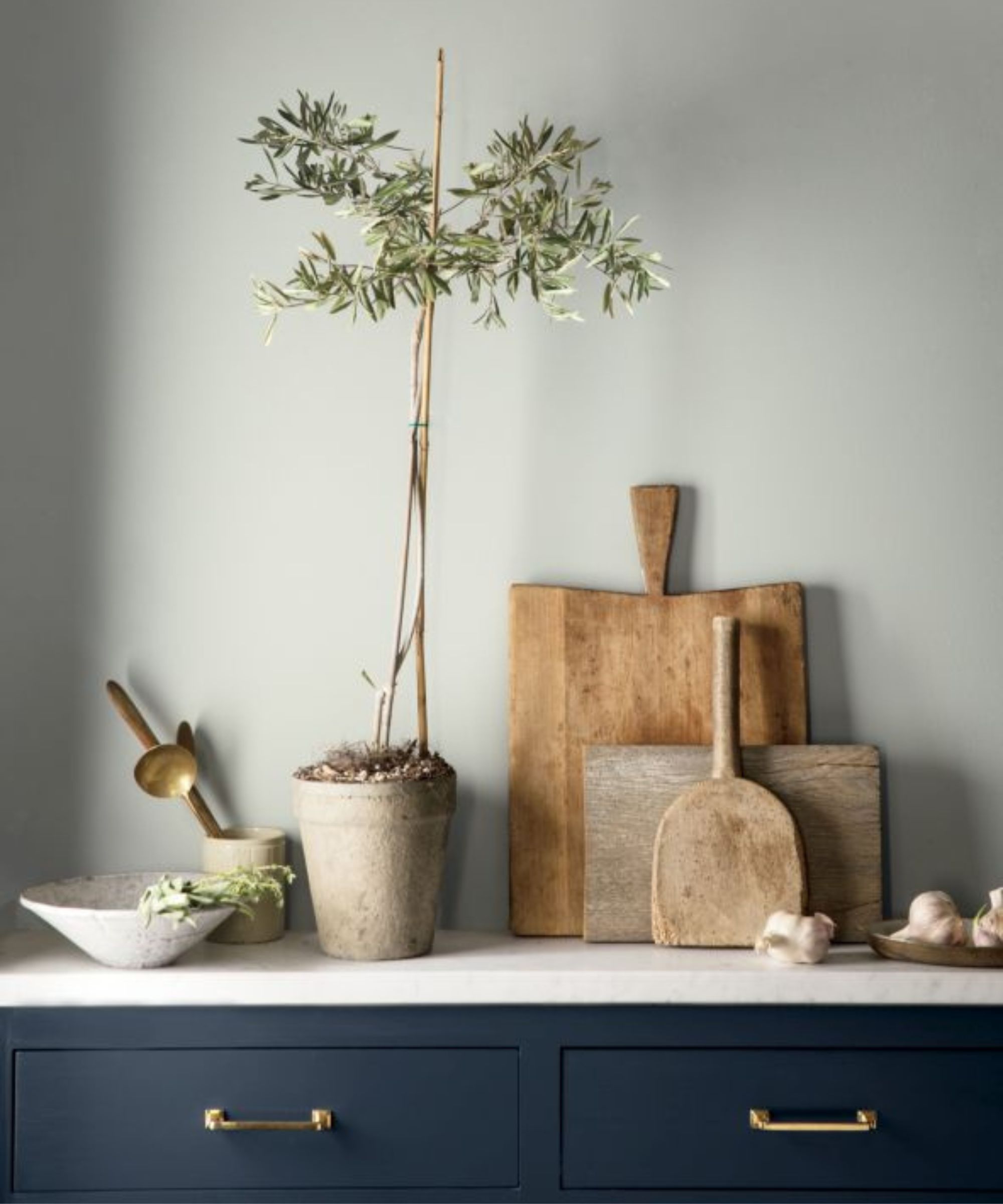
If you love to cook, chop, saute, and scramble, then the wooden cutting board vs plastic debate is worth weighing in on. Perhaps you've already heard the rumors: yes, plastic cutting boards are on the chopping block. Turns out, they develop bacteria-friendly knicks more easily and have been said to leave trace amounts of microplastics in your food, something the most health-conscious among us will want to avoid.
There are pros and cons to each material. For instance, plastic cutting boards can be thrown in the dishwasher, while knowing how to care for a wooden cutting board is a little bit more nuanced. On the other hand, a soft wooden material extends the life of your knives and has natural antibacterial properties — qualities that a plastic cutting board lacks.
This isn't a sign that you should necessarily purge your home of all plastic cutting boards, but rather that it shouldn't be your everyday kitchen utensil. I asked professional chefs and cooking experts to find out more on the wooden cutting board vs plastic debate, and here is what they had to say, as well as highlighting a few other material options that might be an improvement on both.
The Benefits of Wooden Cutting Boards

Wooden cutting boards and plastic are similar in a lot of ways, but the general opinion among professionals is that wood is the preferred material. I've always found wooden chopping boards better for decorating a kitchen countertop because of their more design-forward aesthetic; however, the benefits extend beyond just form.
Quinton Middleton, founder of bespoke kitchen knife brand, Middleton Made Knives, says, "Wood is a softer material, meaning that opting for a wooden chopping board allows for more longevity for your knives/kitchen materials (something ideal if you are wondering how to care for your kitchen knives), and there is less of a chance of particles getting in your food while cutting."
This shedding of particles can happen when plastic cutting boards are heavily scored and scraped off with the knife, and is one of the main reasons to avoid heavy use of plastic when cooking.
Of course, they also add a bit of visually pleasing texture to a kitchen space as well. Once you've done all the chopping, cooking, and cleaning, you can simply prop the wooden board up against the counter and double it as decor. If you are someone who regularly cooks, installing a butcher block counter would make for an even more practical workspace.
If the pros of wooden chopping boards are making you want to toss out your plastic pieces, be warned that wooden boards take a bit more care to look after.
When it comes to cleaning, professional chef and founder of The Forked Spoon, Jessica Randhawa, says, "I wash my wooden cutting boards by hand with warm, soapy water, wipe them immediately, and then dry them." Unlike plastic boards, it's never good to soak or put wooden cutting boards in the dishwasher. "I oil my wood cutting boards monthly with food-grade mineral oil," she adds.
Are Plastic Cutting Boards Bad?

Wooden cutting boards have certain health and professional benefits that make them the top choice in contemporary kitchens, but that doesn't mean plastic options are something to immediately get rid of in your kitchen. In fact, Jessica says, "I use both wooden and plastic cutting boards in my test kitchens for different purposes."
Many commercial kitchens and professional chefs use plastic boards because they can be cleaned and sterilized in the dishwasher. Jessica says, "I use plastic cutting boards when cutting raw meat, because they have juice channels, are dishwasher-friendly, and thus easy to sanitize."
Wooden boards are better "for cutting vegetables and cooked meats, because it is stable and gentle on my knives. My end-grain maple cutting board is my workhorse for daily chopping," she adds.
Your everyday chopping board deserves an upgrade. We care about the food we eat, so it's only right to extend that same thoughtful care into how we prep our food. Below are a few pieces from the best cookware brands that make the perfect upgrade from tired, plastic chopping boards.
Hasegawa boards are a clever Japanese innovation designed with professional chefs in mind. Jay says, "They have a lightweight wood core for easy handling, wrapped in a soft rubber-like surface that’s gentle on knives and highly resistant to bacteria. Unlike traditional boards, they don’t warp, they’re simple to clean with regular detergents or even bleach, and they last for years in busy kitchens." For chefs who put hygiene, safety, and knife care at the top of their list, Hasegawa boards are a modern essential.
This wooden chopping board with storage was at the top of my list for its obvious practical purposes — the attached drawers mean no mess when transferring your chopped vegetables to the frying pan. Plus, the Continenta cutting board from Japanese Knife Company is made of end-grain rubber wood obtained in an environmentally friendly manner. Good on your knives, kitchen, and the environement.
Bamboo boards are the tough, eco-friendly option. Made from a fast-growing, renewable material, they’re strong, scratch-resistant, and less likely to warp than many woods. Jay Patel, founder of the Japanese Knife Company, says, "The downside is that bamboo’s hardness can be rough on fine knife edges, especially Japanese blades. Still, for heavy-duty chopping and cooks who want something sturdy and sustainable, bamboo is a smart, long-lasting choice."
Hinoki, or Japanese cypress, offers the best of both worlds: tradition and practicality. "A little sturdier than Paulownia but still gentle on knives, Hinoki boards also bring a subtle, natural fragrance to the kitchen," says Jay. They have mild antibacterial properties, and with a little care — handwashing and proper drying — they’ll last for years. "Many chefs choose Hinoki as their go-to everyday board, appreciating both its performance and its heritage," adds Jay.
Acacia wood is a strong and sturdy material, and this piece from Le Creuset is stylish enough to be the centerpiece of your indoor and outdoor entertaining. Plus, this style has the juice ridge that many plastic boards include, meaning it will be easier to clean and less messy when preparing things like meat.
Paulownia boards are feather-light, and their soft grain helps keep blades sharp, "making them especially popular for sushi chefs and anyone doing delicate knife work," says Jay. They don’t soak up much water, so they’re less likely to warp than other soft woods, but they can show scratches or dents if used for heavy chopping. "These boards are perfect when precision and knife care matter most," says Jay.
So, when it comes to wooden cutting boards vs plastic, it seems wood has the professional's stamp of approval. Will you be making the switch?
When building the perfect cooking space, it's always worth knowing which kitchen utensils are worth keeping and which to throw away.







